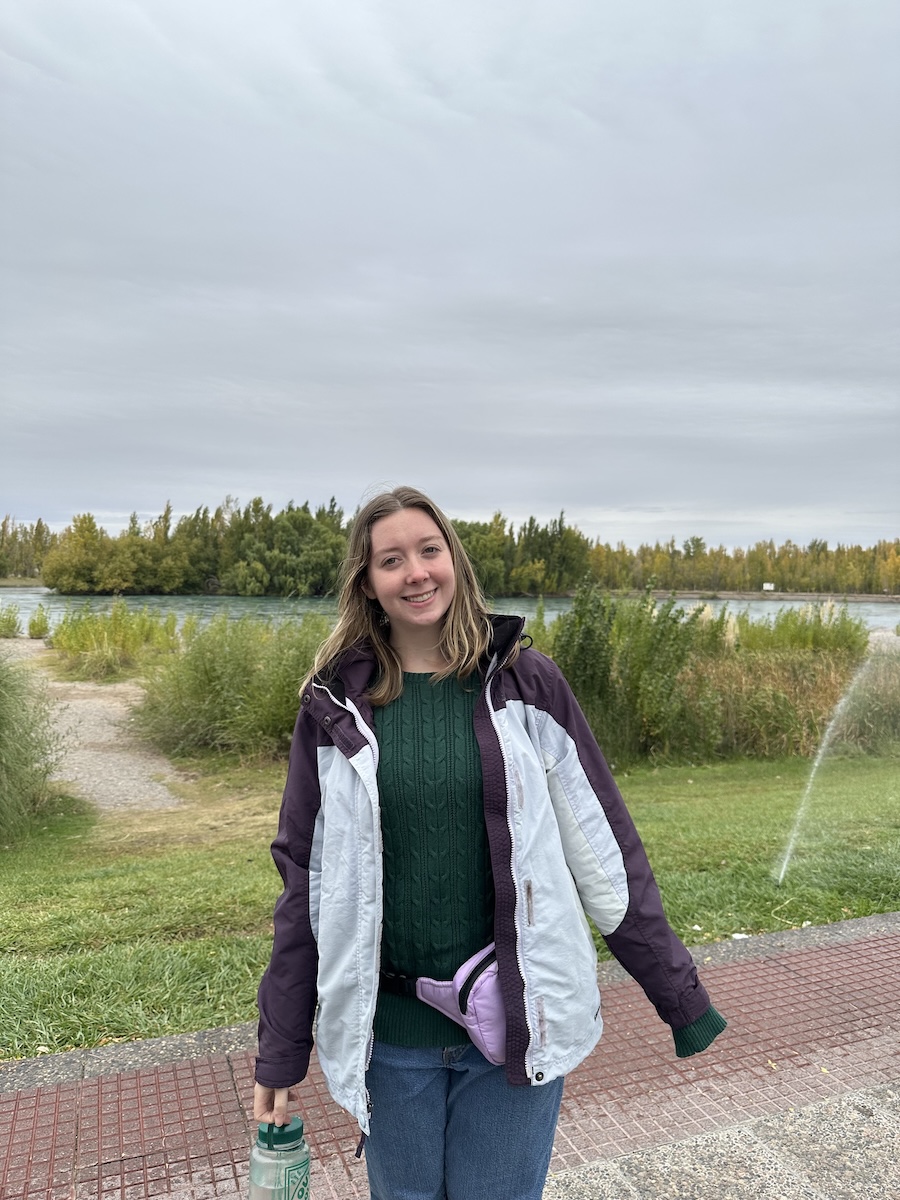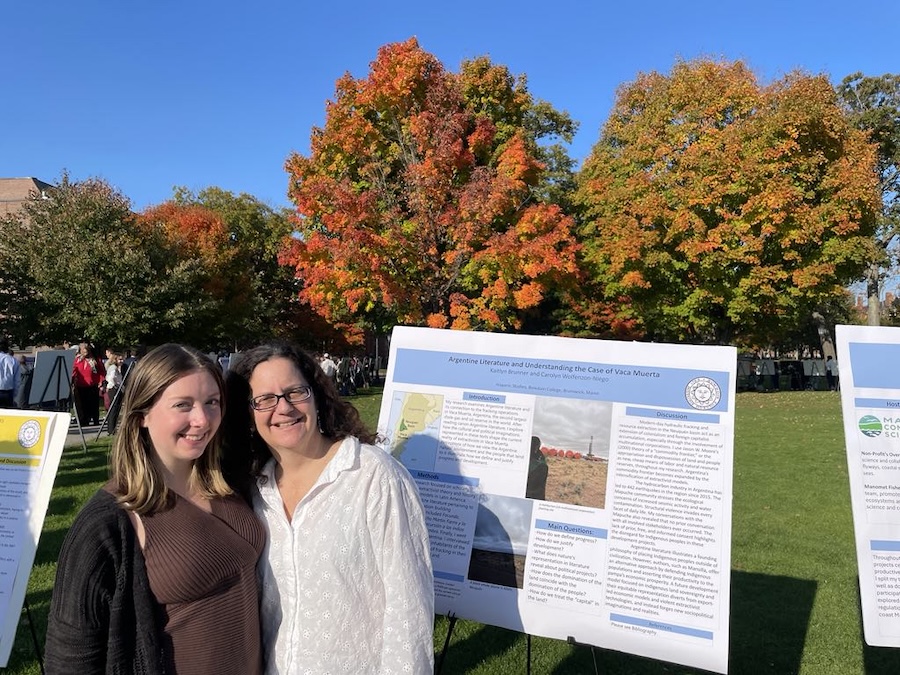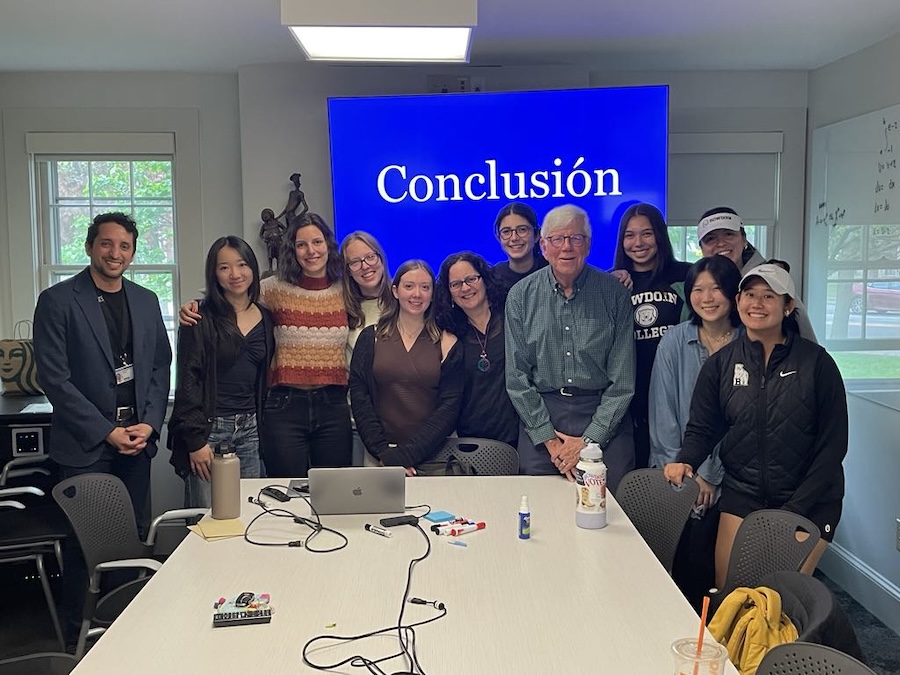From Buenos Aires to Vaca Muerta: Kaitlyn Brunner ’25 on Fracking and Fiction
By Brooke Landry ’27In the arid expanse and dusty air of Patagonia, Kaitlyn Brunner ’25 stood among oil rigs and fractured earth, struck by the contradiction between the region’s fragile beauty and its exploitation. That moment sparked a deeper question: how could a place so delicate be viewed only as a resource?

During her semester abroad in Buenos Aires, Argentina in 2024, Brunner began an independent research project that combined her majors in environmental studies and Hispanic studies. With support from the Allen Wells Travel and Research Award, she traveled to Vaca Muerta, a major fracking site in southern Argentina, where she spoke with members of the Mapuche community and learned more about the impacts of energy development on the environment and Indigenous ways of life.
“I didn’t go to Argentina thinking I would do an honors project,” Brunner said. “It started as an independent study through Middlebury’s program and then became something so much bigger. Getting the Allen Wells funding helped solidify the idea and let me pursue it more seriously.”
Her project, which became an honors thesis, focused on the representation of environmental degradation in Argentine literature. “I started asking: What does development mean? What does progress mean? How have these concepts been shaped by Argentine history and literature?” Brunner analyzed works from the nineteenth, twentieth, and twenty-first centuries, exploring how extractivism has been framed and justified through fiction literature. “I was reading fiction about the same region I had just visited. It was reflecting a reality I had seen firsthand, which made it feel so much more real.”
A major theme that emerged in her research was the historical divide between city and countryside. “In nineteenth-century literature, there’s this binary of civilization versus barbarism,” she said. “The pampas are portrayed as wild and uncivilized, but the whole nation-building project relied on agriculture and resource extraction from those rural areas.” Later texts, she explained, “subvert that dichotomy. The countryside becomes a space of complexity and resistance, not just emptiness waiting to be developed.”
Though her project began with some fieldwork, most of her research was literary. “I read a book a week, sometimes more,” she said. “It was intense. But it sharpened my Spanish and made me feel a lot more confident in my academic writing.”

She credits Professor of Romance Languages and Literatures Carolyn Wolfenzon with encouraging her from the beginning. “I was worried it was too late to apply for the grant, but she told me to go for it.” Brunner also expressed appreciation for her thesis readers, Professor of Romance Languages and Literatures Gustavo Faverón Patriau and Visiting Assistant Professor of Latin American, Caribbean, and Latinx Studies Yoel Castillo Botello. “They consistently gave great feedback, right up to the final edits before I submitted it to the library.”
This upcoming year, Brunner is in the Dominican Republic as a Princeton in Latin America Fellow, working in environmental education. “It’s really special to be immersed in a Spanish-speaking culture and to teach environmental topics. It feels like the perfect intersection of my majors.”
Looking ahead, she hopes to return to some of the questions she could not fully explore in her thesis. “There are so many texts I didn’t have time to include, especially Indigenous literature. I’d love to keep building on this work through a Fulbright or another research grant. It’s a project I feel proud of and one I definitely want to come back to.”
